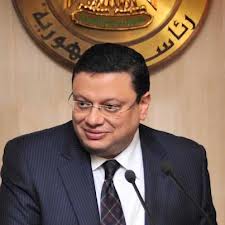CAIRO: The Middle East peace process cannot handle another failure, Egyptian President Hosni Mubarak warned on Tuesday, telling his Israeli counterpart his country would have to make difficult decisions.
There is an increased need now for a political will from the Israeli side, a political will which has the courage to take difficult decisions, Mubarak told journalists after talks with Shimon Peres in Cairo.
The peace process cannot handle another failure, the veteran Egyptian president said, calling on hawkish Israeli Prime Minister Benjamin Netanyahu to believe that peace and only peace can open a new page in the history of the Middle East.
We have clear bases for a just and comprehensive peace, he said, referring to the 2003 internationally-drafted roadmap and a 2002 Arab peace plan offering normalization in exchange for Israel returning occupied Arab land.
The roadmap, adopted by world powers in 2003, requires a complete freeze of all settlement activity on occupied Palestinian land, including natural growth, and the dismantling of all settlements built after March 2001.
The White House has repeatedly demanded that Israel halt all settlement activity in the occupied West Bank in order to relaunch peace talks with the Palestinians, who have refused to meet Netanyahu without a complete freeze.
Netanyahu has said his government will not allow new settlements to be built but that the natural growth of existing settlements will continue.
Peres, whose role as president is largely ceremonial, echoed Netanyahu s position that Israel would remain a Jewish state.
The solution is one of two states. A Palestinian people on one hand, an Israeli people on the other. Israel will be a Jewish state and the Palestinians will have an Arab state, and discussions on that matter have ended.
Israel has no intention to control the Palestinian people, to create more settlements, to confiscate more land.
We must overcome all difficulties and undertake a real political march for a new Middle East in which no country controls another. We move forward in the interest of all parties and our children in the future.
Peace talks were revived to great fanfare at a US conference in November 2007 but have been on ice since Israel s war on the Gaza Strip in December and January.
Mubarak also said on Tuesday that an Israeli soldier captured by Gaza-based militants more than three years ago is in good health and that he hoped he would soon be freed.
I believe [Gilad] Shalit is fine, said Mubarak, whose intelligence chief Omar Suleiman has been mediating negotiations aimed at a securing prisoner exchange between Israel and the Palestinian militants holding the soldier.
I hope the issue will end soon.
Shalit was captured by militants from Hamas and two smaller groups who had tunneled out of Gaza on June 25, 2006 and attacked an army post, killing two other soldiers.
Shalit is believed to be held somewhere inside the Gaza Strip, which has been run by Hamas since the Islamist movement seized power in the Palestinian enclave two years ago.
Israel and Hamas have held months of indirect talks through Egyptian mediators on a prisoner swap that would see hundreds of Palestinian detainees set free in exchange for Shalit, but no deal has been struck.

